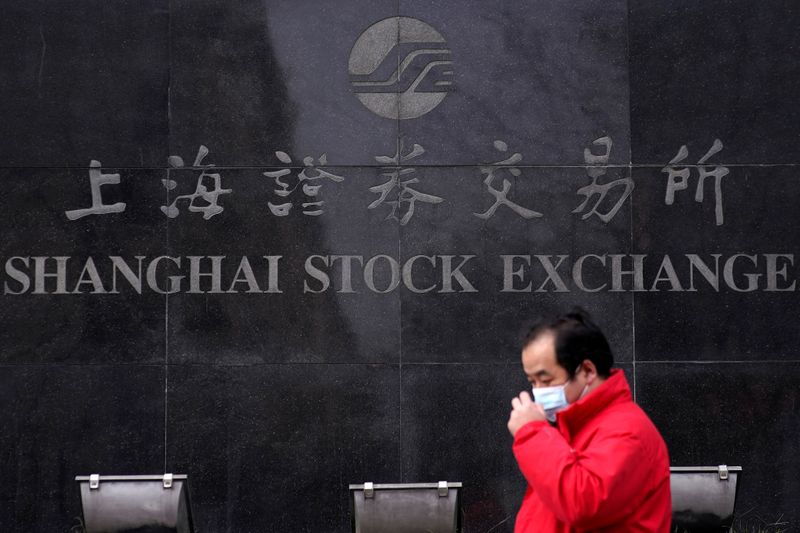US stock futures flounder amid tech weakness, Fed caution
Investing.com-- Most Asian stocks fell sharply on Monday as risk aversion grew in anticipation of more trade tariffs from U.S. President Donald Trump this week, while Chinese markets declined despite strong business activity data.
Regional markets also took a weak lead-in from Wall Street, which plummeted on Friday after a key inflation gauge read stronger than expected for February. U.S. stock index futures sank in Asian trade on Monday.
Concerns over Trump’s tariffs rose sharply after a Wall Street Journal report said he was considering bigger and broader tariffs against major U.S. trading partners.
Trump is set to unveil a host of reciprocal tariffs on April 2, and could also impose tariffs on key commodities, semiconductors, and pharmaceuticals. He had last week announced 25% tariffs on all foreign-made cars in the U.S.
Uncertainty over Trump’s tariffs saw most Asian markets nursing steep losses in March, as investors fled risk-driven assets in the face of trade and economic disruptions across the globe.
Japan, South Korea lead losses among Asian stocks
Japan’s Nikkei 225 slid 3.9%, while South Korea’s KOSPI shed 2.6%. Japan’s TOPIX index also lost 3.3%, with the three leading losses in Asia on Monday.
The three indexes were battered by deep losses in automobile and technology stocks, which carried over declines from the past week after Trump’s tariff announcement.
Japanese stocks took mixed cues from stronger-than-expected industrial production data and a weaker-than-expected retail sales reading.
Major technology stocks- especially those with supply exposure to artificial intelligence- tumbled amid persistent doubts over a supply glut in AI data center infrastructure.
U.S. tech stocks had slumped last week on this notion, especially after reports said major AI investor Microsoft (NASDAQ:MSFT) had canceled several data center leases.
Broader Asian markets also fell amid persistent risk aversion before Trump’s tariffs. Australia’s ASX 200 slid 1.6% before the conclusion of a Reserve Bank of Australia meeting on Tuesday, where the central bank is widely expected to keep rates unchanged.
Several south and southeast Asian markets were closed for a market holiday.
China stocks fall, strong PMI offers little support
China’s Shanghai Shenzhen CSI 300 and Shanghai Composite indexes fell about 0.7% each, while Hong Kong’s Hang Seng index slid 1.5%.
Local stocks appeared to have taken little support from stronger-than-expected purchasing managers index data for March, which showed strength in both manufacturing and non-manufacturing activity.
The reading indicated that Beijing’s recent stimulus measures were bearing fruit. The country had outlined its most aggressive round of stimulus measures through late-2024.
But China still faces growing economic headwinds from the U.S. trade agenda, with Trump planning to impose even stricter trade tariffs on the country.
Still, optimism over Beijing’s stimulus measures saw Chinese markets vastly outperform their regional peers over the past two months.
